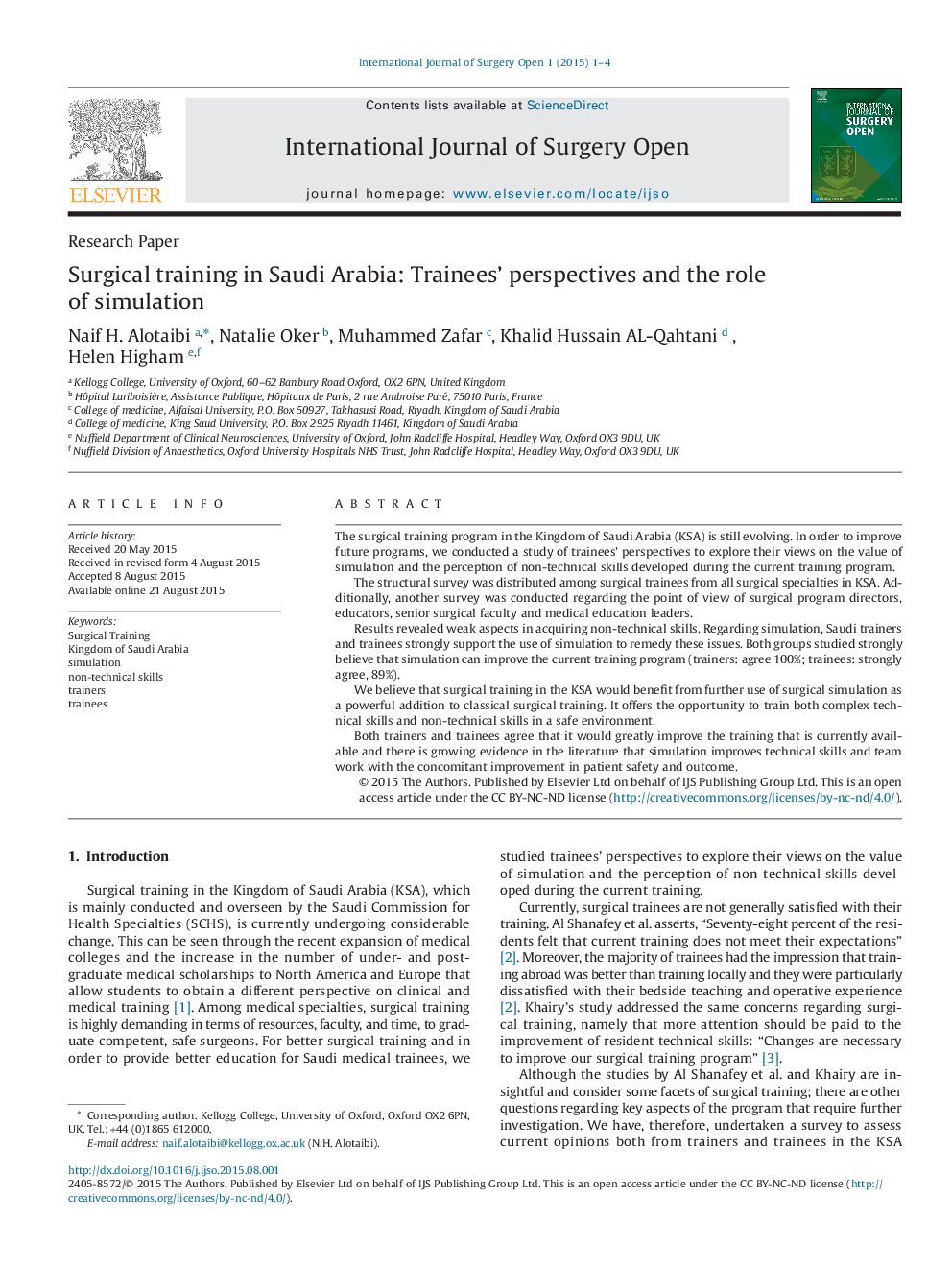| Article ID | Journal | Published Year | Pages | File Type |
|---|---|---|---|---|
| 2728408 | International Journal of Surgery Open | 2015 | 4 Pages |
•The surgical training program in Saudi Arabia is still evolving.•The study revealed weak aspects of surgical training in acquiring non-technical skills.•Saudi trainers and trainees strongly support the use of simulation to remedy these issues.•Simulation can be used to introduce trainees to human factors, teamwork, and leadership skills.
The surgical training program in the Kingdom of Saudi Arabia (KSA) is still evolving. In order to improve future programs, we conducted a study of trainees' perspectives to explore their views on the value of simulation and the perception of non-technical skills developed during the current training program.The structural survey was distributed among surgical trainees from all surgical specialties in KSA. Additionally, another survey was conducted regarding the point of view of surgical program directors, educators, senior surgical faculty and medical education leaders.Results revealed weak aspects in acquiring non-technical skills. Regarding simulation, Saudi trainers and trainees strongly support the use of simulation to remedy these issues. Both groups studied strongly believe that simulation can improve the current training program (trainers: agree 100%; trainees: strongly agree, 89%).We believe that surgical training in the KSA would benefit from further use of surgical simulation as a powerful addition to classical surgical training. It offers the opportunity to train both complex technical skills and non-technical skills in a safe environment.Both trainers and trainees agree that it would greatly improve the training that is currently available and there is growing evidence in the literature that simulation improves technical skills and team work with the concomitant improvement in patient safety and outcome.
